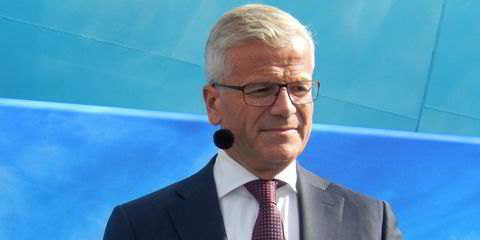Car carriers are visiting China much more often now as Covid lockdown restrictions ease, according to Clarksons Research.
The UK research company logged 18 vessel calls per day by mid-July, up from an average of just 13 in the second half of April and first two weeks of May, a rise of almost 40%.
Lockdowns in April and May sharply impacted car manufacturing and supply chains in China, with total Chinese vehicle carrier port calls down 24% year-on-year as a result.
The Shanghai region was particularly severely hit, Clarksons Research said, with arrivals falling 46% from 2021.
Rates have been hitting record levels, however, and Chinese exports are now firmly rebounding, the company added, with factories ramping up production.
The company views recent improvements as “significant” for the sector.
“China is becoming increasingly important to the global seaborne car trade, with the country’s total seaborne car exports more than doubling year-on-year in 2021 to a record 1.6m cars, or 9% of global seaborne car trade,” Clarksons Research said.
Long-haul exports to Europe have given significant support to vessel demand, the company believes.
“China is quickly becoming a major hub for electric vehicle (EV) manufacturing, with Chinese EV exports increasing by over 150% year-on-year to 500,000 cars in full-year 2021,” it added.
Electric cars outpacing overall export rate
Up to May this year, the figure was 277,000, more than double the figure from the same period of 2021.
This is significantly higher than the 49% year-on-year increase in overall Chinese car shipments at 844,000.
There remains some pressure on car trade volumes from supply chain disruption and component shortages related to both Covid-19 and the Russia-Ukraine conflict, Clarksons Research said.
But major port congestion and support to vessel demand from shifting trade patterns and rising EV uptake continue to feed record market conditions, the company argues.
Volkswagen chief executive Herbert Diess recently told Reuters the group is earning more than ever and is increasing EV production volumes in its two largest markets — Germany and China — due to improved semiconductor access.
Bloomberg reported that China’s shipments of electric cars more than doubled in May to over $1.2bn.
Fearnley Securities said this was likely due to easing of lockdowns, which could also mean China is prioritising “growth over infection”.






